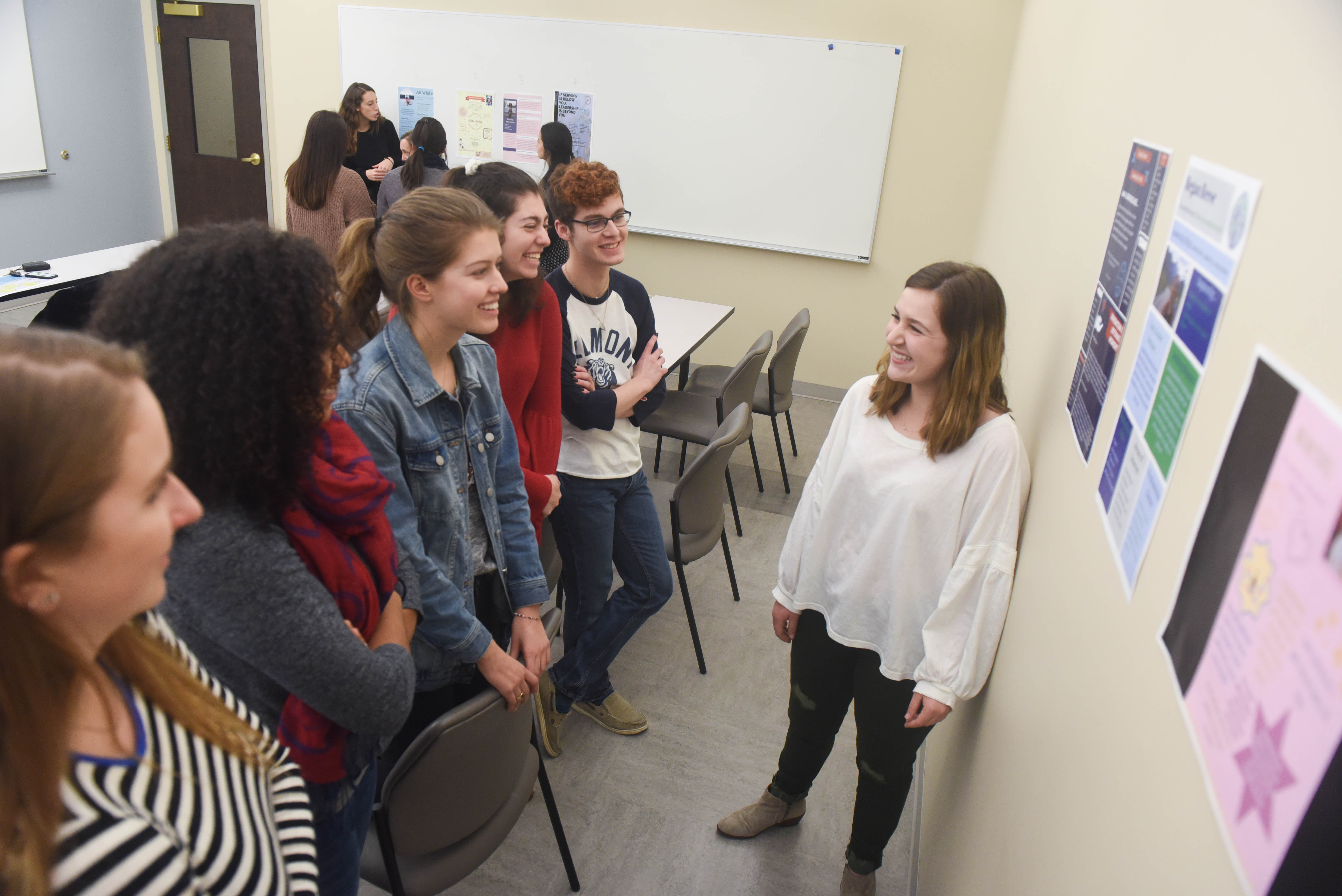Created through Vision2020 process, interdisciplinary courses allow students to participate in meaningful, collaborative education experiences
As part of Belmont’s Vision2020 work, the University’s Interdisciplinary Academic Thinking Team was charged to consider where learning best happens–often at the edge of a traditional discipline or at the intersection of several disciplines. With this in mind, the Interdisciplinary Advisory Council was formed, under the direction of Associate Provost for Interdisciplinary Studies and Global Education Dr. Mimi Barnard, to learn more about interdisciplinary education and explore the possibilities of additional course offerings.
After holding sessions with faculty to discuss these collaborative experiences, four proposals were submitted for new courses including one graduate and three undergraduate courses–all of which were accepted. The following courses will be offered in the coming year:
- Intro to Data Science (Spring 2018): Data Science, a rapidly growing field, brings together computer science, mathematics, statistics, machine learning and communication. This course will introduce students to this field while equipping them with its basic skills and mindset. Data sciences is applicable and becoming increasingly important in many industries including health informatics, entertainment and economics.
- Science and Sustainability (Spring 2018): This course will introduce concepts of sustainability by examining ways businesses and individuals can decrease their ecological impact and focusing on technologies currently employed on Belmont’s campus to do just that. These include the geothermal field under the Lawn, green roofs on many buildings and the ice cooling system in McAfee Concert Hall–all initiatives that have allowed Belmont to achieve its recognition as a leader in sustainability. Students will explore these systems hands-on with the help of Assistant Director of Facilities Management Services Mark Gronas. Using this knowledge, students will perform a cost-benefit analysis of the array of technologies currently in use on Belmont’s campus.
- Learning Community Course (Spring 2018) — Human Behavior in the Social Environment (Social Work) & Intro to Interdisciplinary Trauma Studies (English Writing): This learning community course, meaning students will be enrolled in both courses simultaneously, will examine the ever-evolving field of trauma studies from a health and humanities perspective. The Human Behavior course will examine the biological, psychological and social development of individuals, while considering human behavior from many perspectives. The exploratory writing course will allow students to read a variety of theoretical and psychological studies on trauma, writing and the brain and write their own memoirs. Students will consider how personal and traumatic writing fits into an academic writing course.
Barnard and her team believe in the importance of interdisciplinary opportunities for students — are they are preparing for more than just their workforce while in college. “These experiences are more reflective of real-world contexts,” she said. “When a team of people from a variety of backgrounds works together to solve a problem, you have the benefit of each of those perspectives. Given the fluidity of our current societal concerns, this experience is all the more important.”



